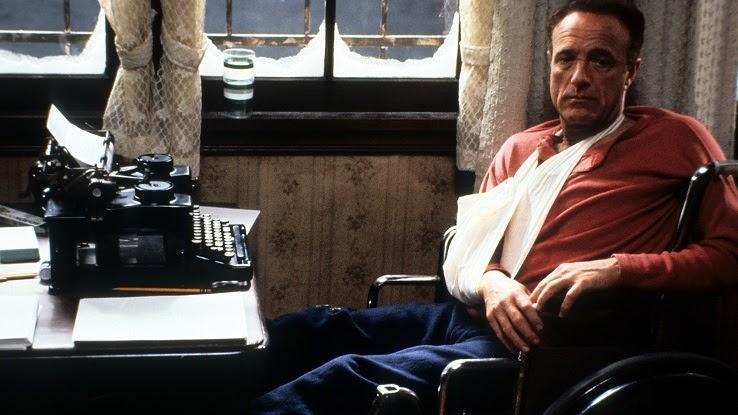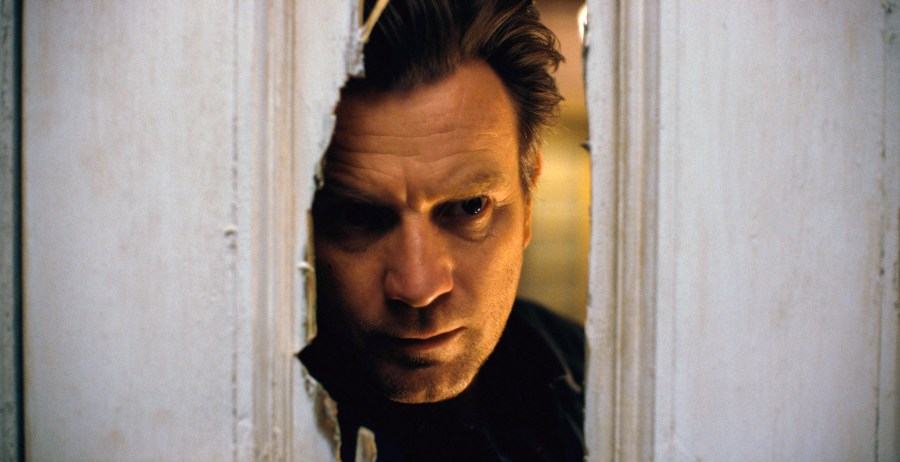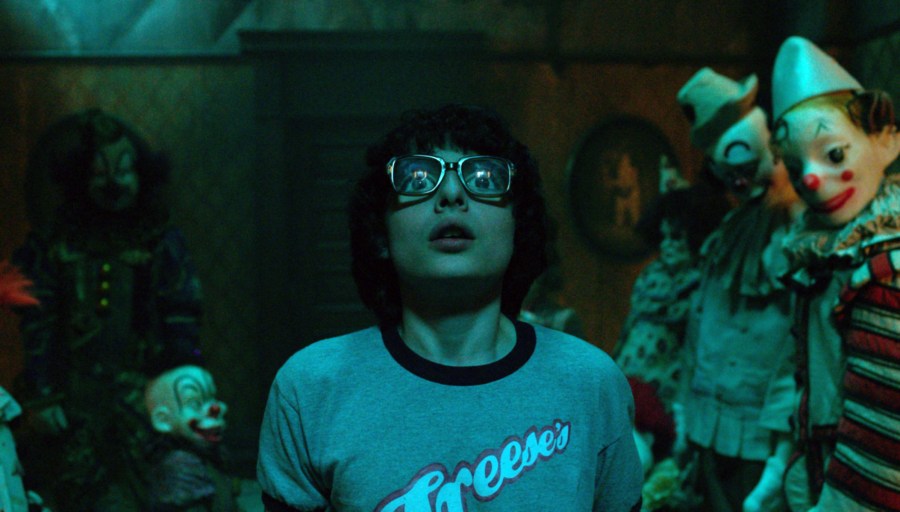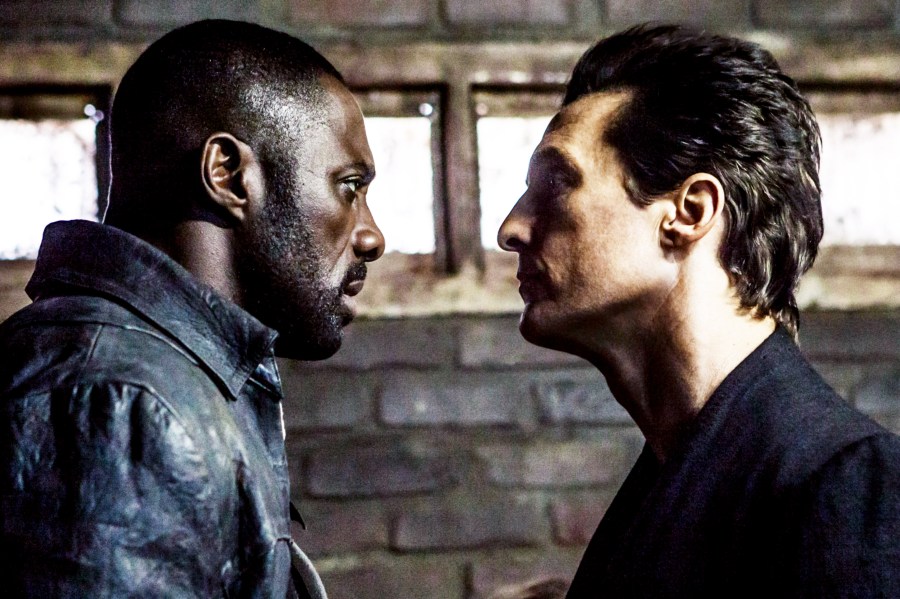
Stephen King is the most prolific and successful horror writer of the last century, penning everything from novels and short stories to screenplays. By exploring the darkest corners of his imagination — and Maine — King has not only invented iconic characters and monsters, but he has gotten at the root of what makes us all squirm. Even though King’s work has been adapted into TV specials, films, shorts and series, not all of these moves from page to screen translate well. Here, we’re taking a look at five of the best adaptations of King’s work — and five of the worst.
To provide us with some parameters, we’re sticking to movies, but we’re disallowing sequels, which are often really bad. That said, you won’t see The Stand (1994), Lisey’s Story (2021) or Children of the Corn: The Final Sacrifice (1992) on this list — for better or worse. And while acclaimed films like The Shawshank Redemption (1994) and Stand By Me (1986) would normally top our list of the best page-to-film adaptations of King’s work, we’re narrowing our focus to the horror genre.
Best: Misery (1990)
Misery is, perhaps, the greatest book-to-film adaptation in all of horror history. It follows Paul Sheldon (James Caan), a writer who’s abducted from the site of a car accident and whisked away to the secluded home of his “number one fan,” an obsessive stalker named Annie Wilkes (Kathy Bates). As Sheldon fights to outwit the hot-tempered Wilkes, he fears that his mind games won’t be enough to get him out from under Annie’s thumb. In fact, Bates’ incredible performance earned her a well-deserved Academy Award.

Book fans will be happy to hear that the movie works hard to translate each terror-inducing second of the novel to the screen, including the more graphic moments. (Remember the hobbling scene, anyone?) Best of all, the tension isn’t stretched out too long; at a tight 107 minutes, the film does a great job of keeping you on edge the whole time. Even King is a huge fan of the Misery adaptation — and it’s always great to have the author’s seal of approval.
Worst: Maximum Overdrive (1986)
Loosely based off of King’s “Trucks” short story, Maximum Overdrive is a dark comedy with supernatural elements and a very ’80s soundtrack. In fact, AC/DC, King’s favorite band, released their Who Made Who album as the movie’s soundtrack. So, yeah, at least we got something out of this total flop. To make matters more perplexing, this mess of a movie stars the likes of Emilio Estevez (The Breakfast Club) and Yeardley Smith (The Simpsons) — and it marks King’s directorial debut.

When Earth comes into contact with the tail of a comet, inanimate machines — ATMs, trucks, vending machines, lawnmowers, chainsaws, electric hair dryers, pocket radios, and so on — gain a semblance of sentience and start killing people. All you really need to know is that King has since disowned the film, calling it a “moron movie” and vowing to never direct again. You may have fun roasting this movie as you watch it, but don’t expect much else from Maximum Overdrive.
Best: Doctor Sleep (2019)
Published in 2013, a whole 36 years after The Shining hit shelves, Doctor Sleep was turned into a movie just a few years after publication. The story follows a now grown Danny as he struggles to have a normal life, permanently marked by his childhood experiences at the Overlook hotel. Call it fate or the power of psychic connection, powerful forces bring Danny back to the site of his childhood trauma in a movie that was well-received by fans of the original.

Directed by Mike Flanagan and starring Ewan McGregor and Rebecca Ferguson, Doctor Sleep was a box office success, and was met with positive critical reviews. Stephen King fans and fans of the original film were impressed by Flanagan’s ability to stay true to the text of the book while also referential to the 1980 film (an adaptation that significantly departed from the written text). Don’t expect jump scares, but do expect a slow-burning thriller that has earned its lengthy run time.
Worst: Firestarter (2022)
Not so much a horror film as a sci-fi thriller, this box office flop has earned a place on our list of worst Stephen King adaptations. Firestarter, based on a novel of the same name, follows Charlie– a young girl born to supernatural parents, whose pyrokinetic powers are an inconvenient features of her childhood temper tantrums. While her parents want to help her control her powers, government agents are also interested in how they might control and use her powers themselves.

Zac Efron failed to impress us (or critics, or audiences across the board) as Charlie’s father. And director Keith Thomas’ attempts to use music or lighting to amp up suspense did little to add intrigue to the film. Critics noted that it fell short when compared to its 1984 adaptation of the same book, which is saying something, given how poorly that film was received in the first place.
Best: Carrie (1976)
Carrie was the first novel King ever published, so not only did the story launch his film career, but it kicked off the parade of Stephen King film adaptations as well. The Brian De Palma-directed film stars Sissy Spacek as the socially awkward, sheltered teenager Carrie White and Piper Laurie as Carrie’s ultra-religious, abusive mother.

While navigating both a brutal home life and tumultuous high school experience, Carrie develops supernatural powers, which, in the face of the continued abuse, become uncontrollable. Carrie might not be the first film you think to queue up when you’re having a scary movie night, but from the iconic bucket of pig’s blood at prom scene to De Palma’s inventive cinematography, it’s an undisputed classic. Although the ending isn’t quite as destruction-filled as that of the source material, the film — and Spacek’s Academy Award-nominated performance — still garnered praise from King.
Worst: Children of the Corn (1984)
Sometimes, a great story just won’t work on film, and this is one of those times. Based on King’s classic short story of the same name, Children of the Corn is set in Gatlin, Nebraska and centers on the children of the town who, to appease an entity called “He Who Walks Behind the Rows,” ritually murder adults. The goal? Besides appeasing this monster, it’s all about ensuring a prosperous harvest.

While Rolling Stone praised it for being a tense slasher, Children of the Corn’s children don’t quite work here; we can’t get over what Vincent Canby of The New York Times called the “farmbelt biblical” speak. Despite a strong premise, the terrible effects and painful-to-watch performances turn this Midwestern gothic tale into something laughable.
Best: It: Chapter 1 (2017)
Pennywise the Dancing Clown is perhaps the most iconic monster in King’s horror universe. In the novel, the intergalactic shape-shifting being terrorized the kids of Derry, Maine for over 1,000 pages, so trying to capture all the details of the lengthy work made for a tall order. While Tim Curry’s Pennywise in the 1990s mini-series adaptation is memorable, the 2017 adaptation of It truly stole King’s heart.

To do just justice to the source material, the film was split into two parts; It: Chapter 1 centers on Bill (Jaeden Martell), a middle-school aged kid whose brother, Georgie, disappears one rainy day. The following summer, Bill and his pals — members of the so-called “Losers Club” — head to the Barrens, a wasteland on the edge of Derry, to look for answers. In this iteration, the killer clown is played by Bill Skarsgård, who gives a deeply unsettling performance. Of the movie, King said, “I had hopes, but I was not prepared for how good it really was.” It: Chapter 2 is a pretty solid entry as well, but there’s nothing quite like the first, terrifying film.
Worst: Cell (2016)
Although John Cusack and Samuel L. Jackson found success in 2007 with the adaptation of King’s 1408, the duo’s 2016 outing didn’t pan out so well. Initially, horror great Eli Roth (Hostel) was set to direct Cell, but that didn’t pan out either. And even though King co-wrote the script, the rather forgettable Cell suffers from being stuffed with genre cliches.

What kinds of cliches, exactly? Well, this sci-fi horror film does zombies dirty. In it, Cusack’s character struggles to reunite with his son after a strange broadcast over the global cell phone network turns countless humans into animalistic zombies. Unfortunately, Cell is lacking in tension and feels downright generic. The bottom line: It’s a bad zombie film and a bad King adaptation.
Best: The Dead Zone (1983)
Set in Castle Rock, Maine, The Dead Zone is a bit more of a science-fiction thriller than a straight up horror film. Still, it manages to incorporate some otherworldly elements that make it feel like a part of King’s larger horror-verse. A review for The New York Times perhaps put it best, noting that The Dead Zone is “a well-acted drama” and “more eerie than terrifying, more rooted in the occult than in sheer horror.”

At the beginning of the film, Johnny Smith (Christopher Walken) has a coma-inducing car accident. When Johnny wakes, five years have passed, and his former girlfriend is married with a child. The supernatural element comes into play when Johnny learns that he can see aspects of peoples’ lives by touching them. This ability helps him solve a string of murders and, later, encourages him to try and change the course of the future. We won’t spoil anything, but just know that this David Cronenberg-directed (The Fly) adaptation is certainly worth the watch.
Worst: The Dark Tower (2017)
Okay, so The Dark Tower is more of a sci-fi Western than a horror film, but we’re including it here for two reasons. First of all, it’s kind of the keystone of King’s literary universe; the mythical Dark Tower supports various realities, so, in the book series, several of King’s characters, settings and other touchstones pop up. And, second, it has got to be one of the most disappointing, overly hyped films of the last decade.

In the film the formidable Idris Elba plays Roland Deschain, a gunslinger tasked with protecting the titular structure, while Matthew McConaughey plays his foe, Walter O’Dim — a.k.a. The Man in Black. But big-name actors couldn’t save this adaptation from failure. Stuck in production purgatory for years, The Dark Tower could’ve been the first in a successful film franchise (or cinematic universe), but, instead, it turned out to be, as one reviewer put it, “not even bad enough to be fun.”
Best: The Shining (1980)
Directed by film icon Stanley Kubrick, The Shining follows Jack Torrance (Jack Nicholson), a writer who scores a job as the wintertime caretaker of a mountainside resort known as the Overlook Hotel. Jack’s wife, Wendy (Shelley Duvall), and his young son, Danny (Danny Lloyd), relocate with him, believing it will be a vacation from their worries back home. But the Overlook isn’t what it seems; the family soon encounter both violent and seductive apparitions; Danny learns of his own latent supernatural ability; and Jack’s mental health deteriorates.

Although it received its fair share of criticism at the time, The Shining has won more favor over time. Packed with memorable imagery and made more visceral by Nicholson’s potent performance, Kubrick’s film is chilling, but slow-moving. In the ’80s, that felt antithetical to conjuring up on-screen jump scares, but now we’re perhaps more accustomed to variety in the horror genre.
Still, it’s worth noting that King hated Kubrick’s adaptation, though he would later come to admit the ways that the film shaped the genre of horror in film. And that’s precisely what makes this entry a must-watch in the canon of horror movies.
Worst: The Lawnmower Man (1992)
Supposedly adapted from an original screenplay called “CyberGod,” The Lawnmower Man takes its name from King’s short story of the same name. In fact, the film was first billed as Stephen King’s The Lawnmower Man, but the master of horror sued to have his name removed from the work — and for good reason. In King’s story, a lawn-mowing service man makes ritualistic sacrifices to the deity Pan. Here, however, Dr. Lawrence Angelo (Pierce Brosnan) experiments on a man named Jobe (Jeff Fahey).

While Jobe receives superhuman abilities, he also becomes more aggressive — and more eager to become a fully digital entity. King sued, claiming that the film bore little resemblance to his work and, therefore, his name should be removed from the movie and any promotional materials. Good call — we wouldn’t want to be associated with this Frankenstein-inspired flop either.
Legal issues aside, the special effects have aged about as well as the graphics in a PlayStation 2 game. But, more than that, Lawnmower Man is a film marked by heaps of melodrama and terrible performances. If you can even call this one a Stephen King adaptation, it would, undoubtedly, be at the bottom of the barrel.






